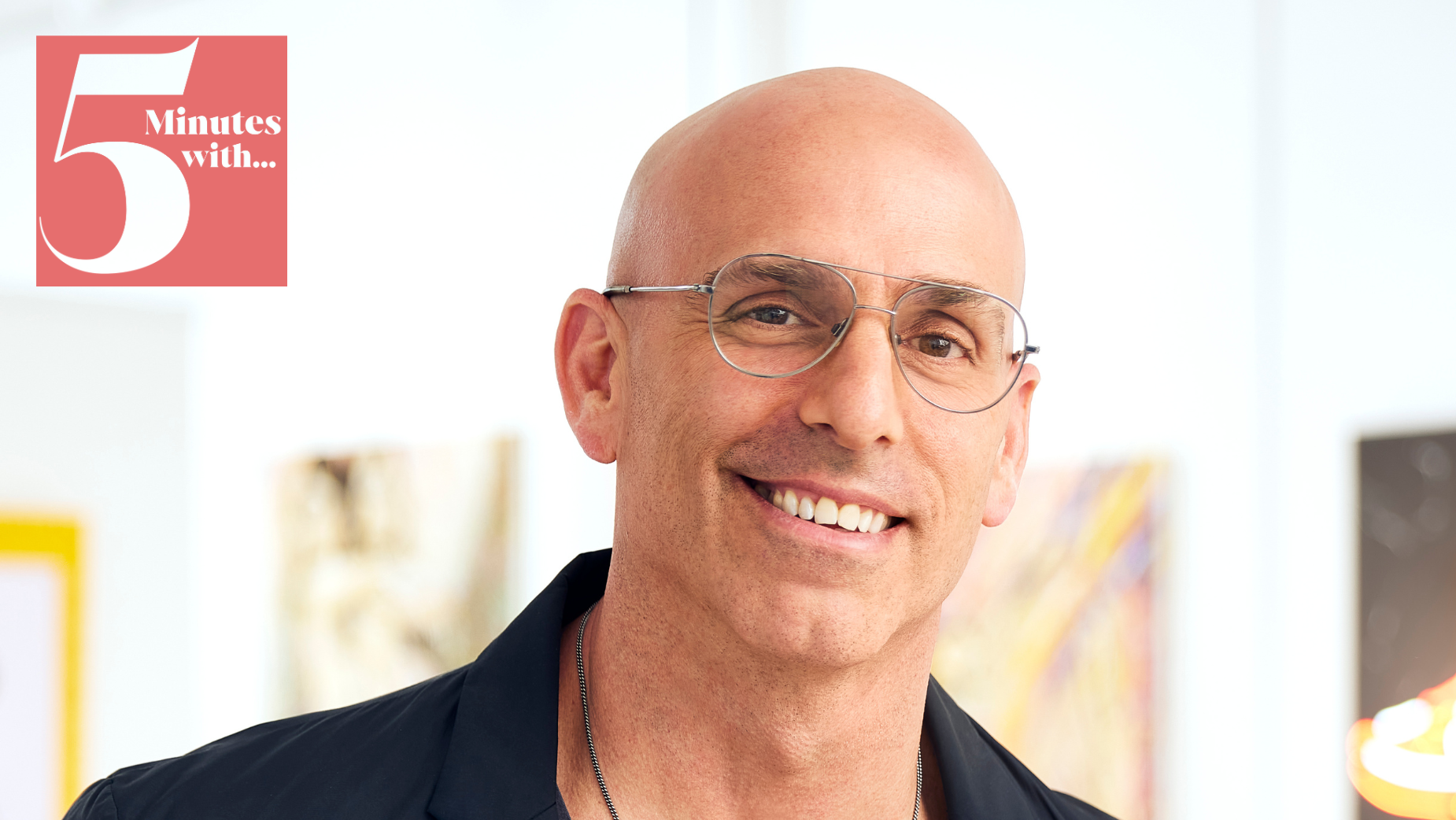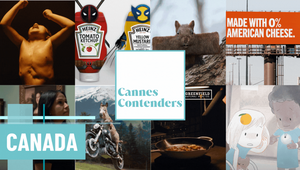
5 Minutes with… Matt Litzinger

When you strike up a conversation with Matt Litzinger, something curious happens. It’s a strange phenomenon, but it’s as consistent as clockwork. The Local Collective’s founder and CCO has a knack for making you feel more positive about life, the world, and this industry. In lieu of a more scientific definition, perhaps it’s best described simply as “good vibes”.
In fairness, Matt has plenty to feel positive about. The Local Collective has defined its own approach to its work, helping brands and their audiences feel like locals to one another. The agency’s output is less like walking underneath a neon billboard in a crowded city square, and more akin to the comforting warmth of stepping through the door of your favourite restaurant.
Over the course of our discussion, Matt touches on the cinematic romance of childhood, defining success, and why he’s ready to embrace a ChatGPT therapist…
LBB> Matt, let's start at the beginning. What kind of a kid were you growing up, and at what point did you first think of yourself as a 'creative' person?
Matt> This is such a fun question. I’d like to think I was a good friend to my buddies. I was someone my group relied on, and I loved just hangin’ out and doing stuff. Specific to being a creative kid, I think I’ve always had a creative lens to look through.
I always found - and still find - that I instinctively looked at life through a romantic or artistic lens. I love finding the balance of things in an out-of-balance life… because the idea of true balance is really just an illusion.
LBB> Do you still look at life - and your work - through that romantic lens today?
Matt> I think so, but it’s different when you’re older because you have a greater sense of how time is fleeting anyway. It’s also been massively influenced by becoming a parent, given that you know how much each moment can matter. I recently took my daughter on a trip to LA, and I was hyper-conscious that I was trying to give her a core memory. That in thirty years she might say “oh yeah my Dad took me to LA when I was eleven”, the same way we look back at our own childhood family vacations through nostalgic glasses. So yeah, that perspective is still part of how I see life - just in a slightly different way.
LBB> Let's talk about TLC. What kind of vision did you have when you first helped to set up the agency, and has it changed at all five years down the line?
Matt> I always wanted to try and build something that felt different from all the other agencies I had experienced before. Not just in how it approached the business and partnerships, but how we defined what our own success was.
So often in this business there’s an immense pressure on growth, on size, on headcount, almost as a badge of success. But for me, I wanted a place that was fun, creative, and kind. A place that understood that great work is always expected, but so are great vibes.
Over the years, I don’t believe that has changed. If you consistently partner with the right people, it should never have to change.
LBB> So if you’re not judging your success by the agency’s growth or headcount, how do you judge it?
Matt> For me personally, success is the knowledge that I’m proud of the people surrounding me and of the work we create together. That we’re putting stuff out into the world which makes us, and our clients, proud.
Often in our industry, you’ll hear folks say that the great privilege of owning your own agency is the ability to say ‘no’. I think it’s the opposite - it’s the ability to say ‘yes’ when you really, really want to. I judge The Local Collective’s success by how much we’re making use of that privilege.
LBB> We live in an unprecedentedly connected world. Isn't it harder than ever before to truly feel like a 'local'?
Matt> No - it’s maybe a little harder to experience those feelings authentically, or perhaps to avoid confusing that experience with the digital version of it. But ‘local’ isn’t a location to us, it’s a feeling. It’s the feeling you get when you ride the subway in a new city. Or walk into a restaurant that smells like something from your childhood. It’s an emotional state that can most easily be interpreted through the feeling of being a local. Those are the types of insights we chase. Those small, unique moments.
LBB> Why do you think that feeling of local-ness is a powerful one for brands to tap into?
Matt> I think over the past two decades people have become more driven towards authenticity. Not in a ‘branded content’, “what does your brand stand for?”, marketing mumbo-jumbo way, but in a literal way of experiencing something.
Brands are operating under a different set of expectations today. It’s not enough to cast young people in an ad because you are targeting young people. That’s a simple example, I know, but brands have the opportunity to not just reach their target through effective media placements but connect with them in a deeper way. To do something, or say something in a way that makes their target not just aware of you but LOVE you. People yearn for that more now than ever before. Creating that feeling is our speciality.
LBB> So looking back at your work to date, is there a particular project that you feel truly encapsulates your approach?
Matt> That’s tricky, given that we love all our children! But one that jumps to mind is the campaign we did for the Roncesvalles Small Business Association during the COVID lockdown.
Had we approached it a more traditional way we would have done a television commercial, some out of home, some radio, and maybe some print. The message would have been hooked around the idea of supporting local businesses. But instead, we tried to really uncover how the local people were actually feeling and created an activation that drove real consumer behaviour, because we made them give a shit so intensely.
LBB> In your opinion, what qualities should an effective creative leader have?
Matt> I’m not sure how qualified I am to answer that question. But, for me, I try to follow a couple of thoughts:
First, I try to lead with an empathetic lens. Everyone is dealing with shit, some need more or different types of support. So, being as understanding as possible helps.
Second, creative leadership is like repairing a plane while you’re flying it, so some decisions need to be made very quickly to stop the plane from crashing. Whereas other decisions need to be made slowly - or the plane will still crash. Part of becoming a leader is learning to discern which is which.
And lastly, it’s ok to think you’re right - as long as you know when you’re wrong.
LBB> The industry buzzword of the day is AI. How have you found your own interactions with the tech so far, and does it leave you feeling broadly positive or fearful for the future?
Matt> I’m incredibly excited by it! I love how it will change what we do in ways we cannot even imagine yet. It feels like there’s a tremendous opportunity for a new wave of creativity, one that is spurred by the competitive, human need to be different and stand out.
If you look at the history of painting, it was continually evolving and becoming more and more realistic. There were waves of various movements, but realism was becoming more and more the desired choice of art. And then this invention came along that allowed you to make the most realistic “prints” ever. That invention (the camera), created more art movements, not based on realism in a much faster time frame then all the previous movements prior. In our field, AI should cause that!
To be honest, I think it’s lawyers and doctors and exclusive professions that should be more worried. Professions that require less human failure moments, as opposed to creativity, should be our focus… And I think we’re pretty close to a ChatGPT therapist.
LBB> Finally, imagine you had access to a time machine with the ability to travel back and give your past self one piece of advice. What advice would you give, and why?
Matt> Take your time. Walk, don't run. Chances are you’re ending up in the same place anyway - so you might as well enjoy the journey as much as you can. Slow is fast.















